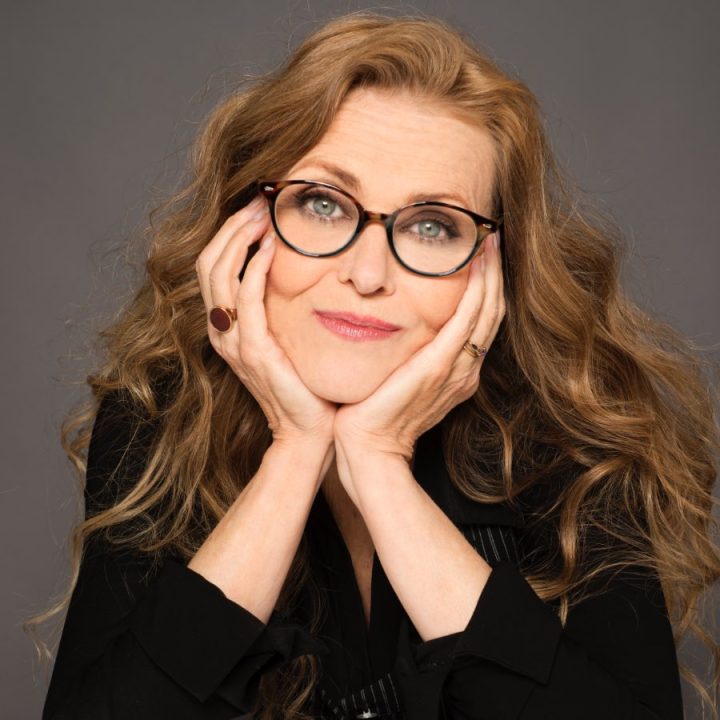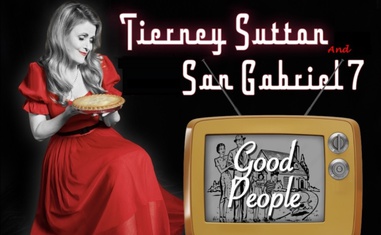The views expressed in our content reflect individual perspectives and do not represent the authoritative views of the Baha'i Faith.
Tierney Sutton, a nine-time Grammy-nominated jazz vocalist, raises awareness of systemic racism in the United States with her new single, “Good People.”
“Good People,” which was officially released today, is a satirical song that focuses on the wealth gap, housing discrimination, residential segregation, and historic violence against the Black community.
As someone who has watched this music video many times, I was excited to interview Tierney about her inspiration for this powerful and educational song.

Radiance Talley: Hi, Tierney! Thank you for taking the time to answer my questions. I noticed that you included a quote from the Baha’i writings about justice in your music video. Can you share how long you have been a Baha’i and what attracted you to the Baha’i Faith?
Tierney Sutton: I learned of the Baha’i Faith in 1980 when I was in High School in Milwaukee, WI. I declared myself a Baha’i on July 4th, 1981. What attracted me was the writings of Shoghi Effendi about race in the United States. His insight felt like it was from God.
Radiance: How did you become aware of systemic racism in the U.S.?
Tierney: My father was a civil rights lawyer in Milwaukee, and certain things were understood in our household and mentioned frequently by my father and mother. I grew up with a serious mistrust of police and knew that there was serious sentencing disparity and deadly racism in the justice system. However, I think I was a little bit like the character in my video in certain ways. I didn’t learn specifically about the economic underpinnings of this country and the systems that were intentionally put in place to keep money where it began.
A Baha’i friend, Idola Scimeca, told me about eight years ago, as we prepared an evening to study racism in America, “You don’t understand Tierney. This was done consciously.” I found the podcast “Scene On Radio” Season 2: “Seeing White” to be very helpful in opening my eyes. Also, the book “Caste: The Origins of Our Discontents” by Isabel Wilkerson.
Radiance: As you know, Shoghi Effendi, the Guardian of the Baha’i Faith, stated that “racial prejudice” is our nation’s “most vital and challenging issue.” How do the Baha’i writings guide your approach to ending racism in the U.S.?
Tierney: The writings of Shoghi Effendi are my guide. I’ve quoted them over and over to friends when discussing race in the U.S. As far as I can tell, “The Advent of Divine Justice” is the only Baha’i book that actually gives different spiritual advice to human beings based on race — and yet, growing up in the United States, it seems so obvious that we white Americans do suffer from a “usually inherent and at times subconscious sense of superiority” and we often display a “patronizing attitude” — these are the spiritual deficits we need to overcome. In the United States, overcoming racism is a spiritual prerequisite to healing the world, and, as I understand Shoghi Effendi’s counsel, white people need to do it first, not expecting any response (he says that specifically) and recognizing “grievous and slow-healing wounds.”
It also seems logical to me that in order for Black Americans to “forget the past,” as Shoghi Effendi tells them, white Americans have to embrace the past and fully absorb it and understand it. I look at the U.S. as a traumatized, insecure teenager who can’t admit its wrongdoing and faults and pretends that it’s perfect. Only when white America really sits with the brutality and injustice that has been and is American racism will we be able to move forward.
Radiance: Yes, I believe “The Advent of Divine Justice” is the most powerful book for racial healing in the U.S. I can see how the Baha’i writings inspired you to write your latest single. How did you come up with the title “Good People”?
Tierney: I think white people are very attached to the idea that we are “Good People,” and, honestly, the hypocrisy of that insistent self-perception in the face of our past — and our present — kind of makes me crazy.
Radiance: Would you like to share any of the personal experiences, lessons, or collaborations that led to the composition of this music video?
Tierney: I was so lucky to find the unbelievably gifted Ethan Woldenberg to create this video with me. I gave him a storyboard, and we got together and “spotted” the song (kind of like what filmmakers do with finished films before adding music — but in this case, it was the reverse process.) This means I wrote out song lyrics and put the kind of images and headlines under each one that might reinforce the message. For example, I had originally written a verse mentioning freeways and encouraged Ethan to add that idea through the images.
The music was a big collaboration — like all the music I’ve done. I wrote the lyrics, but my old bandmate, bass player Trey Henry, sent a phenomenal bassline (he actually sent a few to choose from), and then Rob Domos and Ben Spriggs played with some chord structures. It was a long process of several months. I also turned to some friends who were active with me in a Baha’i Rooting Out Racism group at that time and asked them what areas I should write about.
Radiance: How do you hope your song will impact others?
Tierney: I think once things are seen, they cannot truly be unseen. I retain optimism that humans (even white Americans) desire justice and fairness. I know my tone in the video is quite snarky, but everything in the video is true. I believe that people can deny systemic racism only until they look at money. Then it’s game over. That’s why no one in the white culture wants to talk about it!
Radiance: What unique role do the arts have in advancing social justice?
Tierney: I’ve done a lot of things in a 30-year music career, but this feels like the most important, and oddly, it’s because the song is “catchy” somehow. It feels like the medicine might go down this way. At least, I hope so! It feels like what I was supposed to do.
Radiance: Yes, the Baha’i writings say, “Art can better awaken such noble sentiments than cold rationalizing, especially among the mass of the people.” And, your song is definitely catchy! Where can people go to listen to or buy “Good People”?
Tierney: The song is available on all platforms. The 10-song album, which is also called “Good People,” will be released on March 1, 2024.
Radiance: If people would like to attend one of your live musical performances, where can they find the schedule for your tour?
Tierney: The best thing is to put your name on my email list at tierneysutton.com, but you can also follow me on Instagram (tierneysutton_music), on X (Twitter) (@tierneysutton), or on my Facebook music page (Tierney Sutton Music). I’m currently performing in New York at Smoke Jazz Club from Jan 31 to Feb 4 and have upcoming shows in Los Angeles, San Francisco, Denver, Wichita, and Cincinnati. I get around. Send your friends.
Radiance: Attending one of your live performances was a pleasure. Thank you, Tierney, for discussing your inspiration and creative collaborations. I was honored to cameo in your music video. I believe “Good People” will inspire further study, reflections, and conversations about this “most vital and challenging issue” of racism in the U.S. Be sure to follow Tierney on social media and check out her new single, “Good People,” below:

















Comments
Sign in or create an account
Continue with Facebookor